Find TN Treatment Programs for Eating Disorders
When faced with an unmanageable eating disorder, what steps should one take? This section will examine some concrete recommendations, such as mental health treatment programs, that can help you take the first steps toward recovery and return to a better way of life.
If you suffer from bulimia nervosa or any other type of eating disorder, Resurgence Tennessee is among the top eating disorder treatment centers in Tennessee and can help support your recovery!
Dealing With an Eating Disorder

Understanding the nature of eating disorders may prove useful first. It’s probably going to have a little different meaning from what you expect. When a person’s inflexible beliefs about how they should look, feel and behave in relation to their body and food, they have developed an eating disorder.
Their lack of physical activity and healthy diet puts their lives, well-being, and safety in jeopardy. Perhaps at first, your goal was to simply shed a few pounds. It could have been that you felt the need to “get in shape” for the beach or a special function. Losing weight or inches, though, can rapidly become an unhealthy obsession that spirals out of control. An eating disorder may develop from this.
Resurgence Tennessee provides specialized care for those struggling with eating disorders, including a center dedicated to treating binge eating.
Get Immediate Help For Eating Disorders – Call Now!
888-290-5254
Statistics Related to Eating Disorders
Eating disorders often first appear during adolescence or early adulthood. The onset of these conditions, however, is not restricted to a specific time in life but can occur at any time, even in childhood. About 2.7% of teenagers between the ages of 13 and 17 have an eating disorder, citing data from the National Institute of Mental Health. In addition, the prevalence of eating disorders among females is around two and a half times higher than it is among males.
By the way, the National Institute of Mental Health classifies an eating disorder as anorexia, bulimia, and/or binge eating. A majority of people who suffer from binge eating disorder do so after the age of 25. Binge eating disorder was substantially more prevalent among those aged 18–29, 30-44, and 45–59 than among those aged 60 and older. Anorexia nervosa typically manifests between the ages of 19 and 20, while bulimia nervosa typically manifests between the ages of 20 and 21. Regardless, an eating disorder treatment center is required to mitigate the situation.
Do You Need Facilities to Treat an Eating Disorder?
You now realize that your eating disorder is completely controlling your life. It’s probably time to buckle down and figure out what you’re going to do differently now that things have gotten this bad. Perhaps the state of your health as a whole has gotten so severe following a long fight with anorexia, bulimia, or an over-eating disorder that you finally came to this revelation. In fact, without intervention, anorexia, bulimia, and binge eating disorder all worsen.
To that extent, eating disorders are similar to other addictions. You can’t simply stop doing it on your own once you start. Possibly you are wavering, being willing to do whatever it takes one day and then changing your mind the next. If this describes you, not even your parents or spouse putting pressure on you to enter an eating disorder rehabilitation program will be enough to help you enter an inpatient eating disorder treatment program.
Overcoming the Misrepresentations of Eating Disorders

One of the most difficult aspects of coming to terms with an eating problem is overcoming the social stigma that is still widely held about those who suffer from it. False beliefs and assumptions are what keep prejudice alive.
You won’t be able to solve this problem by yourself. You should ask for assistance. You can get help if you want it, whether you go to a recovery clinic specializing in eating disorder treatment – offering programs like intensive outpatient and others. The goal here is to kick off the procedure to remedy your disordered eating. Getting better is possible only if you take the first step toward recovery.
Disordered Eating Can Be Treated
Truth be told, eating disorders are medical conditions that can be helped. Reversing negative patterns, adopting new, healthy food and lifestyle habits, and gaining expertise with this way of life all take time. You can learn how to cope through our eating disorder treatment program at Resurgence Tennessee.
It’s possible that you’re suffering from more than just an eating disorder and that you need the assistance of a facility that deals with mental health issues like depression, addiction, and post-traumatic stress disorder.
Treatment for an eating disorder must begin with a focus on restoring a healthy equilibrium in your life. Adequate eating, regular activity, and no more purging are all part of this. Certain types of psychotherapy, individual therapy program, and medication can be effective in treating eating disorders. The first step toward a better lifestyle is deciding to get help for an eating disorder, whether it’s through residential rehab or intensive outpatient care.
Individual therapy, group therapy, family therapy, nutritional counseling, medical care and monitoring, and pharmaceuticals are all possibilities in a personalized treatment approach. Relapse can be avoided by including family or marital therapy in the patient’s treatment plan. Through this, problems in social interactions caused by eating disorders can be resolved. With the help of a therapist, family members can gain insight into their loved one’s challenges and develop coping mechanisms.
Find Dual Diagnosis Treatment Options – Call Now!
888-290-5254
Educate Yourself About Eating Disorders
Is your life being controlled by an eating disorder? If so, what steps can you take today to start the road to recovery? You should first familiarize yourself with the characteristics of the eating problem you suspect you have or have been diagnosed with. Find out the real truth behind anorexia nervosa and other technical variations of eating disorders.
Dig up information about your eating disorder combined with post-traumatic stress disorder. The stigma of eating disorders can be overcome quickly with the use of accurate information that dispels the fears and myths that surround them.
Eating Disorder Treatment

At Resurgence Tennessee, we provide treatment recommendations when an eating problem has been diagnosed based on the patient’s physical, psychological, and laboratory data. Inpatient, outpatient, intense outpatient, partial hospital, intensive outpatient, and residential care are all options for patients undergoing treatment. Consultation with your medical provider is the first step. If you have an eating disorder, you should get help. Maybe there’s a facility like Resurgence Tennessee near you, or maybe you know someone who has gone through treatment themselves.
If you’re struggling with an eating disorder, where can you find help? Hospitalization, outpatient services, and group homes are the available options. During inpatient treatment, clients live at the facility where they get care. This can range from a few weeks to a few months, depending on the nature of your eating disorder, how far you’ve come in your recovery, and your overall physical and mental health.
Inpatient facilities that also provide outpatient care are another option for those seeking outpatient treatment for an eating disorder. The primary goal of residential treatment is to ease the returning client’s readjustment to normal life. Sometimes this is a dedicated care facility, while other times, it takes the form of follow-up activities or ongoing medical attention.
Community-Based Support Groups for Individuals
Besides our integrative life center and comprehensive treatment, you’ll need the support of friends, family, and outside organizations dedicated to helping people in recovery from eating disorders, even after you’ve finished formal treatment. Overeaters Anonymous and other groups are available for people with these challenges. There are no initiation fees or membership dues required to join these 12-step fellowship groups, and everyone who attends remains anonymous.
Discover Eating Disorder Options – Call Us Now!
888-290-5254
Programs to Overcome Eating Disorders
When an eating disorder takes over your life, there’s just one thing you can do: get help. At Resurgence Tennessee, we can help you overcome the challenges in your life associated with an eating disorder.
Our trained, compassionate staff is dedicated to helping you experience recovery and regain your health. For more information, contact a member of our Admissions team today!





